- Overview
- Specializations
- Online Adult Gerontology – Primary Care Nurse Practitioner (AGPCNP) Program
- Adult Gerontology Acute Care Nurse Practitioner (AGACNP)
- Online Pediatric Nurse Practitioner (PNP) Program
- Online Family Nurse Practitioner (FNP)
- Online Psychiatric Mental Health Nurse Practitioner Program (PMHNP)
- Online Women’s Health Nurse Practitioner Program (WHNP)
- Program Details
- Careers
- Curriculum
- Admission Requirements
- University Details
- Faculty
- FAQs
- Resources
- Tuition and Fees
Online Family Nurse Practitioner (FNP)
Overview
With 70% of all nurse practitioners certified in family care, family nurse practitioners (FNPs) play a major role in health care today. The responsibilities of FNPs have evolved alongside that of physicians, which means additional opportunities, autonomy, and authority.
Part of the online Master of Science in Nursing (MSN), Regis College’s online Family Nurse Practitioner program can help you develop the specialized skill set you need to practice at an advanced level.
You may be eligible for a one-time Rise at Regis credit, valued at $1,025, if you start your journey this summer. There’s a 6-credit enrollment requirement.
Calendar
Credits: 39-63
Courses: 18
Duration: 26-38 months
Application Deadline:
March 30, 2026
Upcoming Start Date:
May 4, 2026
Why Choose the Regis Online MSN FNP?





Benefits of an Online Family Nurse Practitioner Program
Are you a registered nurse (RN) considering an advanced practice role? At Regis, you can earn your FNP degree in as little as 26 months and enter an in-demand field.
The program’s inclusive approach to nursing education offers multiple entry points to meet you where you are on your academic journey: Associate Degree in Nursing to MSN, Non-Nursing Bachelor’s to MSN, and Bachelor of Science in Nursing to MSN.
Additionally, our convenient online learning format allows you to meet your clinical requirements where you live while balancing work, family, and other personal commitments.
Advance your nursing career with our online Family Nurse Practitioner program.
Hear from Our MSN FNP Students
“My experience with Regis surpassed all of my expectations. The curriculum was comprehensive, well formulated, and had small class sizes promoting relationships among students and faculty that facilitated and supported learning. The program prepared me well for board certification, and I was pleased with the availability and expertise of the faculty.”
– Alison Tetrault, online MSN student
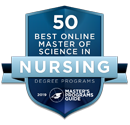
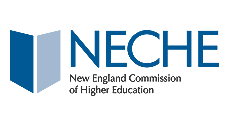
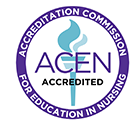

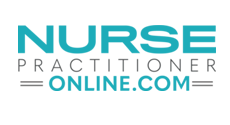
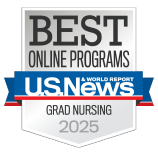
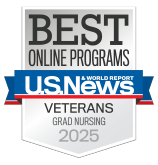
What Can You Do with an MSN FNP Degree?
Family nurse practitioners focus on holistic care. From diagnosing, treating, and helping to manage illnesses to counseling and educating patients on preventive care, family nurse practitioners tackle every aspect of medical service for a variety of populations, from newborns to seniors.
- Prescribe medication
- Conduct examinations
- Order laboratory tests
- Provide health care counseling
- Diagnose, treat, manage, and help prevent illnesses
- Assist in minor office procedures
Earning an MSN FNP degree can also lead to greater autonomy. Family nurse practitioners play a major role in understaffed health care organizations because they’re able to perform many of the same duties as physicians, including interpreting medical histories, conducting physical examinations, and prescribing medication.
Where Can a Family Nurse Practitioner Work?
With a growing shortage of physicians, rising standards in primary care, and a rapidly aging population, family nurse practitioners are in higher demand than ever. That means FNP degree holders can pursue a wealth of opportunities and apply their expertise in a variety of settings, including:
- Hospitals
- Privately owned clinics
- Physician offices
- Home health services
- Government agencies
- Nurse-led practices
- Community health organizations
- Universities
- Minute clinics
- School-based health centers
What Is the Typical Family Nurse Practitioner’s Salary?
FNPs earned a median annual salary of $100,500 as of March 2023, according to Payscale, with a salary range between $83,000 and $124,000. A family nurse practitioner’s salary can vary depending on a variety of factors, such as work setting, level of experience, and location.
For example, family nurse practitioners in New York City and Los Angeles earned 21% more than the national average, according to Payscale data.
MSN FNP Job Outlook
The online MSN is a virtual extension of our highly regarded on-campus program, one of the largest nurse practitioner programs in Massachusetts. The Regis School of Nursing was the first in New England to be designated a Center of Excellence in Nursing Education and is accredited by the Accreditation Council for Education in Nursing.
At Regis, we work directly with active nursing professionals. That means we have an insider’s perspective on the leadership qualities the field demands, and we design our courses to build those skills. Our online Family Nurse Practitioner program is designed to help you promote lasting change in the medical field by providing holistic care revolving around the family unit.
Family Nurse Practitioner Careers
Provide care to patients of all life stages. Develop relationships with entire family units.
Family nurse practitioners (FNPs) provide a wide range of family-focused primary care services to patients across the lifespan. FNPs conduct health assessments and tests and provide preventive care, disease management, treatment of chronic and acute illnesses. Much like a physician, an FNP is able to diagnose health concerns and may even prescribe medication, depending on which state they practice in.
Family nurse practitioners enjoy the range of patients they can treat- people of all ages, from infants to geriatrics. Other NP specialties are narrow in scope and focus on a specific age group, branch of medicine, or medical setting.
FNPs are in demand

FNP responsibilities include:
- Conducting physical and health assessments
- Performing diagnostic tests and analyzing results
- Prescribing medications
- Developing treatment plans for acute and chronic illnesses
- Providing education and guidance on disease prevention and healthy lifestyle habits
- Facilitating preventive care and disease management
- Managing patient care for patients of all ages
Common practice settings include:
- Hospitals
- Privately owned clinics
- Physician offices
- Home health services
- Government agencies
- Nurse-led practices
- Community health organizations
- Universities
- Minute clinics
- School-based health centers
Did You Know?*
- The top diagnoses treated by FNPs are abdominal pain, urinary tract infection and gastroesophageal reflux disease.
- The top clinical focus areas for FNPs are family, primary care and urgent care.
- The majority of full-time NPs (59.4%) see three or more patients per hour.
Ready for Your Next Step?
Online Family Nurse Practitioner Program Curriculum
We’re here to support you. With several levels of student support, no GRE requirements, and a flexible learning environment, we’re breaking down barriers that often prevent bright minds from reaching their full potential in advanced practice. Our inclusive approach to family nursing practice starts with three entry points:
- Associate Degree in Nursing to MSN
- Non-Nursing Bachelor’s to MSN
- Bachelor of Science in Nursing to MSN
After completing any required undergraduate-level nursing courses, MSN FNP students take core MSN classes, such as Health Assessment, Community-Based Nursing, and Nursing theory. These core courses strengthen nursing leadership skills and incorporate clinical hours.
The family nurse practitioner curriculum offers clinical concentration seminars that focus on primary care of the family. Nursing students gain experience through supervised clinical preceptorships. Our online Family Nurse Practitioner program also offers electives so you can specialize your degree. Options include courses such as Complementary Therapy; Advanced Psychopharmacology; and Sociological, Political, and Economic Perspectives in Gerontology.
Experience an Expertly Crafted Curriculum Taught by Our Supportive Faculty.
Associate Degree in Nursing to MSN
- Associate Degree in Nursing from a regionally accredited institution and accredited program
- Must complete a college-level statistics course prior to the start of classes
- Active unencumbered RN license
- General education courses may be required, depending on your prior undergraduate coursework
Non-Nursing Bachelor’s to MSN
- Bachelor’s degree from a regionally accredited institution of higher education
- Must complete a college-level statistics course prior to the start of classes
- Active unencumbered RN license
- Associate Degree in Nursing (ADN) required.
- Active Registered Nurse (RN) license required.
- General education courses are not required due to prior bachelor’s degree.
Bachelor of Science in Nursing to MSN
- Bachelor’s degree in nursing from a regionally accredited institution and accredited program
- Must complete a college-level statistics course prior to the start of classes
- Active unencumbered RN license
Core MSN Courses Include:
Family (FNP)
Electives (select one):
Online Family Nurse Practitioner Program Admission Requirements
Registered Nurse with Associate Degree Entry or Registered Nurse with Non-Nursing Bachelor’s Degree Entry:
- An Associate Degree in Nursing or a non-nursing bachelor’s degree from a regionally accredited institution of higher education
- Minimum 3.0 cumulative GPA preferred
- Active unencumbered RN license
- Complete 15 bridge credit hours with a B or better
- Must complete a college-level statistics course prior to the start of classes
- For RNs with Associate Degree in Nursing, general education courses may be required, depending on your prior undergraduate coursework
Registered Nurse with Bachelor of Science in Nursing Degree Entry:
- A Bachelor of Science in Nursing degree from a regionally accredited institution and accredited program
- Minimum 3.0 cumulative GPA preferred
- Active unencumbered RN license
- Must complete a college-level statistics course prior to the start of classes
MSN FNP Application Requirements
You can begin your application process today. To get started you will need to submit the following:
- Application form
- Official transcripts from all post-secondary institutions
- Proof of active unencumbered RN license
- Current resume
- Statement of purpose
- Two letters of recommendation
About Regis
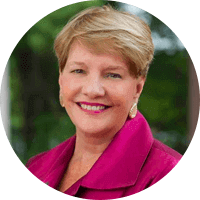
Meet Our Faculty

Jessica Landry, DNP, MSN-FNP
Frequently Asked Questions
Regis is a leading Catholic university in Greater Boston that has been preparing students for success in an evolving, global world since 1927. Our distinguished and personable faculty prepare nurses with a values-based education integrated with cutting-edge technology and industry-focused curriculum in a wide variety of high-demand and niche specializations.
With a focus on holistic patient-centered care, our online MSN program incorporates insider perspectives on the leadership qualities the field demands to help you build the skills you’ll need to positively affect the field.
NPs have greater control over their professional practice and patient outcomes and may benefit from competitive salary earnings. Many NPs practice independently in some states with prescriptive authority and are being granted more autonomy nationwide.
Additionally, the health care industry is facing a nationwide shortage of physicians and a rising need for primary care, particularly throughout the pandemic. Preparing to become an NP helps nurses hone their skills to deliver the best patient care and outcomes in an industry that continually emphasizes the need to attain ongoing and advanced education.
The program allows three points of entry, providing flexibility to our students:
- RN with Associate Degree (ADN to MSN)
- RN with Non-Nursing Bachelor’s Degree (Bachelor’s to MSN)
- RN with Bachelor of Science in Nursing Degree (BSN to MSN)
Depending on your entry point, you may complete your online MSN degree in as few as:
34 months – RN with Associate Degree (ADN to MSN)
34 months – RN with Non-Nursing Bachelor’s Degree (Bachelor’s to MSN)
26 months – RN with Bachelor of Science in Nursing Degree (BSN to MSN)
*Final curriculum will be decided on individual basis, including potential transfer credits
Depending on your entry point and chosen specialization, the number of credits earned through the online MSN degree may vary:
RN with Associate Degree (ADN to MSN): 54-63 credits/PMHNP 57-66 credits
RN with Non-Nursing Bachelor’s Degree (Bachelor’s to MSN): 54-63 credits/PMHNP 57-66 credit
RN with Bachelor of Science in Nursing Degree (BSN to MSN): 39-48 credits/PMHNP 42-51 credits
Cost Per Credit Hour:
- $1025 per credit hour
Application fee: $75
More information about online graduate nursing program tuition and fees, financial aid, payment options, etc., can be found here.
Yes. You may be eligible to transfer up to 9 graduate credits from a regionally accredited institution and accredited program. Three credits each, final grade of a B- or better. Have more questions? Speak with an admissions advisor to learn more.
*Conditions may apply
The online MSN student will typically complete between 664 and 724 hours of clinical practice, depending on your entry point.
Students have an option to space out clinical hours over 2-4 semesters, with approval from the program director.
Regis is proud to offer a 10% tuition discount on fully online programs for employees, members, and spouses of employees of our partner organizations.*
Regis College aims to help military, veterans, and their families to further their education. This is why we offer a 15% tuition discount to all active and reserve military, veterans, and military spouses for our online programs.
We’re also pleased to offer 15% off tuition on online programs to all federal government employees, and their spouses, working in any federal department.
A 10% Alumni discount is available to anyone who has graduated from Regis with a degree, excluding those who only received a certificate from Regis.
Two levels of graduate assistantships are offered at Regis, giving online students the unique experience of gaining valuable professional skills while benefiting from financial aid opportunities.**
*Some exceptions apply. The Regis partnership discount cannot be combined with any other discount or scholarship offered by Regis.
**Graduate Assistantships are available to graduate students who are enrolled in a minimum of six credits within their graduate program and maintain a 3.0 GPA.
Family Nurse Practitioner Resources

FNP vs. NP: Differences and Similarities Between Family Nurse Practitioners and Nurse Practitioners
A nurse practitioner can specialize including pediatrics, family, and women’s health. Family nurse practitioners specialize in family medicine.

Acute Care Nurse Practitioner vs. Family Nurse Practitioner: What’s the Difference?
Wondering about the specialization differences for an acute care nurse practitioner vs. a family nurse practitioner? Read on to learn more about these options now.

The Role of the Family Nurse Practitioner
Learn about the role of a family nurse practitioner and the benefits of earning an advanced degree online, such as a Master of Science in Nursing.

The Importance of Teamwork and Collaboration in Nursing
Nurses must communicate with relevant professionals about their patients’ treatment plan while also understanding the role of each assigned team member.

What Is the Importance of Evidence-Based Practice in Nursing?
EBP enables nurses to make data-backed solutions that incorporate clinical expertise and current research into the decision-making process.

BSN or MSN: Which Is Right for Me?
The nursing discipline features a full range of educational options, including baccalaureate, graduate, and terminal degrees.
Tuition and Fees
$1025
Per credit hour
$100-$300
Estimated cost of textbooks per course
Ways to Save on Your MSN FNP Tuition

Regis partner employees can receive a discount on their tuition. Find out if your employer is a partner.

Federal government employees as well as active and reserve military and veterans are eligible for a 15% discount on tuition. Find out more.

Regis alumni who have earned a previous degree from Regis are eligible for a 10% discount on tuition. Speak to an advisor for more information.

We are here to support you through the process. Speak to an advisor to learn more.

Earn financial aid helping fellow students while also gaining valuable professional skills. Get more details.
Related Programs

Pediatric Nurse Practitioner

Psychiatric Mental Health Nurse Practitioner

Women’s Health Nurse Practitioner

Adult Gerontology – Primary Care Nurse Practitioner

Adult Gerontology – Acute Care Nurse Practitioner

Online BSN to Doctor of Nursing Practice
